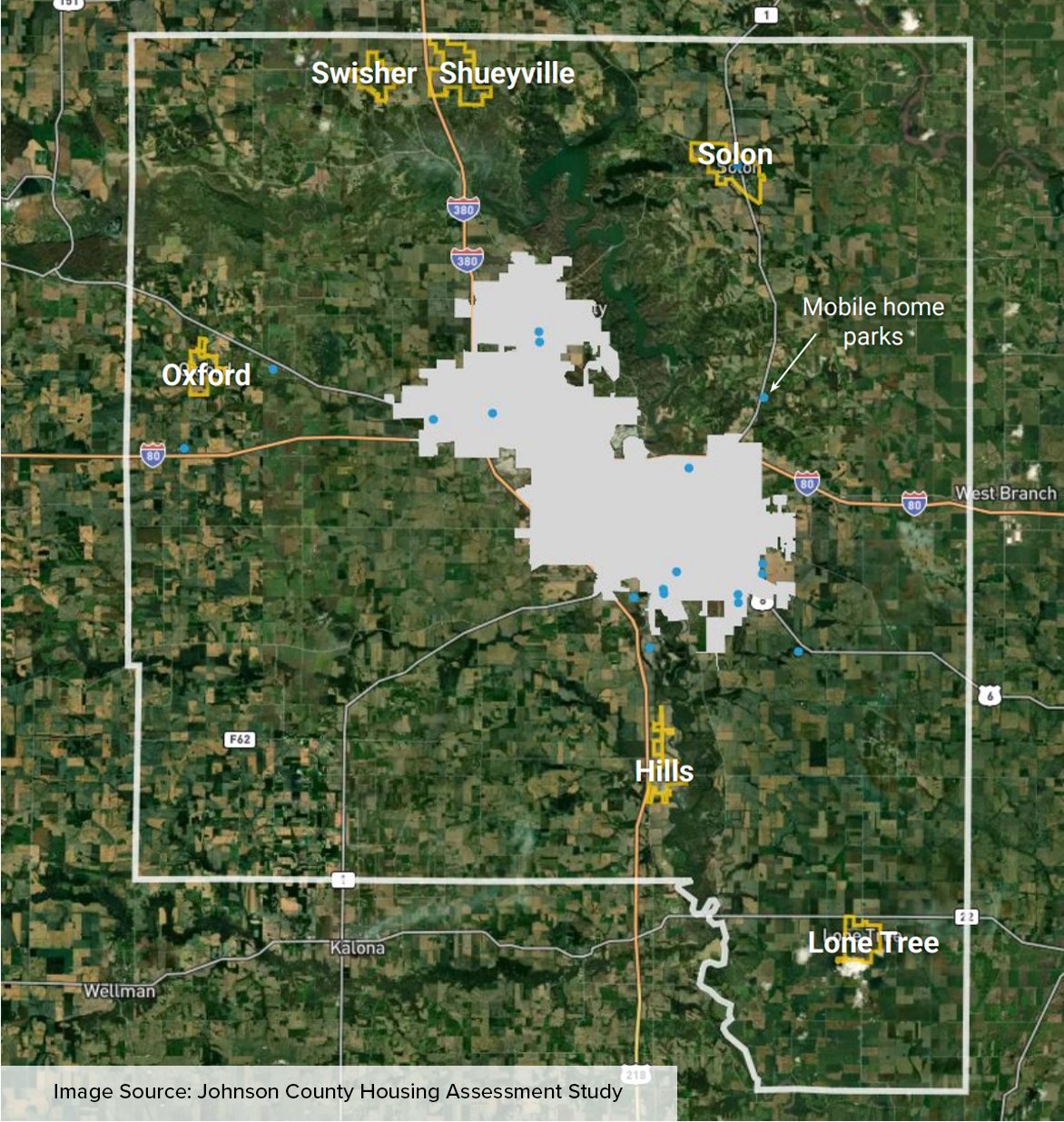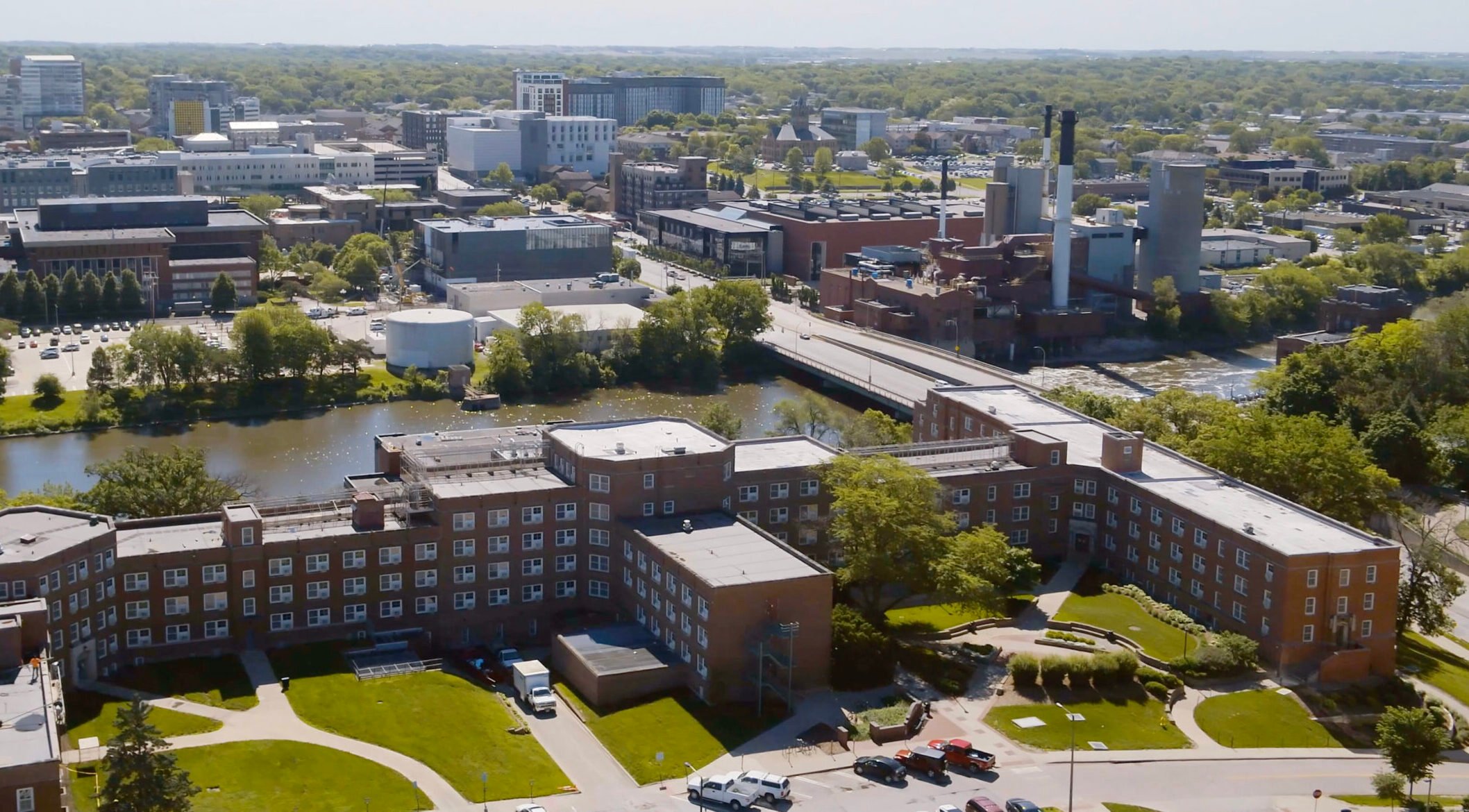Cedar Rapids Metro Economic Alliance / Iowa City Area Business Partnership: 2021 State & Federal Public Policy Agenda
With the help of our combined 2,000 members, partners and community stakeholders, the Cedar Rapids Metro Economic Alliance and Iowa City Area Business Partnership work together to develop comprehensive state and federal public policy agendas for the ICR region. Since the global pandemic, and the recent major natural disaster, we remain focused on economic growth policies that best support our communities now and into what has become a less predictable future.
Many of the issues in our public policy agendas cross over among workforce development, business development and community development. It’s clear the need to grow, retain and attract a skilled workforce remains the number one challenge facing our region’s business community. To that end, our policy agendas incorporate themes of closing the skills gap, accessibility and welcoming communities to grow our workforce, bridging rural and urban interests, as well as promoting businesses-friendly regulations and tax structures to support the short-term and long-term needs of our business ecosystem. An ecosystem that has been battered by the multiple hardships of 2020. It is also imperative to support policy solutions to close opportunity gaps and bring equity to our education, employment and entrepreneurial systems.
To our region’s federal and state policymakers, we respectfully request support for the following:
Workforce Development
Iowa’s workforce challenges remain a top concern for our member businesses in the aftermath of the COVID-19 pandemic. With unemployment uncertainties, we have an opportunity to address the core issues facing workforce and adjust policies to meet future demands. A strong education system that aligns with the needs of the business community is critical to meeting our region’s current and future workforce needs. Iowa must support innovative initiatives and programs that develop needed skills and expand employer involvement in the development of workforce programs that align with PK-12, community colleges, universities and private institutions to maximize local efforts to build Iowa’s talent pipeline. We must bring Iowa schools back to world-class competitiveness and regain our reputation as the best education system in the nation by promoting and rewarding high-quality teachers, tracking student progress and also investing in continuing education training programs and early childhood education if we want to encourage more people to stay, return to, or discover Iowa as a place to live. Additionally, we must ensure skilled, qualified workers continue to have the ability to live and work in the United States to help us meet current and future labor demands and drive innovation and entrepreneurship.
Workforce Development State Agenda
- Support funding Future Ready Iowa initiatives, including the Employer Innovation Fund and Last-Dollar Scholarship program, without diverting funding from other local and state efforts to build our talent pipeline.
- Support public school districts’ ability to determine their individual district needs by allowing for flexibility in categorical fund spending.
- Support innovative teaching in public PK-20 schools and a next-gen assessment system designed to measure learning skills in order to better align students with the skills demand of Iowa’s workforce, including supporting additional resources and programs that certify teachers for computer science training, increase STEM classes for middle and high school students, and address increased demand for high school student internships and teacher externships.
- Support policies that modernize and improve the education funding formula in a way that serves all school districts and students and allows school boards to effectively manage their financial resources to meet their responsibilities.
- Support policies that address workforce child care challenges, including the “cliff effect” to allow more employees to enter the workforce, incentives for local businesses, communities and nonprofits to develop solutions that increase accessibility to quality and affordability child care.
- Support policies that help prepare offenders for successful reentry to Iowa communities and employment, including the expansion of high school equivalency diploma pathways and apprenticeships that train workers in a career pathway while earning credits toward an equivalent diploma.
- Maintain and incrementally increase funding for K-12 education in the wake of pandemic related headcount decreases, as well as support adequate resources to ensure resilience and recovery for our education system.
- Support funding requests for Kirkwood Community College and the University of Iowa, including their economic development activities that grow and diversify the state’s economy.
- Support policies that welcome all populations to Iowa, allowing businesses to attract a diverse workforce and cities to compete to host community events.
Workforce Development Federal Agenda
- Retrain workers for jobs of tomorrow by creating a streamlined return to work program including additional dollars in Pell Grants, for traditional, non-traditional and incarcerated learners.
- Support funding priorities for the University of Iowa, including, research funding that will spur innovation and entrepreneurship in our region.
- Support robust funding for federal financial aid programs so post-secondary degrees and certifications become attainable at all learning institutions.
- Provide a clear COVID Safety Strategy including a vaccination distribution plan that gives employees and employers the ability to return to life as normal.
- Support state and local efforts that ensure child care providers remain open and help families cover the increasing cost of child care and allow parents to remain in the workforce.
- Support inclusive and welcoming policies that allows for a pathway to citizenship and expands opportunities for additional students and workers from around the world to meet the demands of our local business community.
Business Development
Business is often the leader when it comes to community initiatives, and we are committed to identifying and advancing solutions to help close the opportunity gaps that exist in our region. Businesses from all industries have been impacted by COVID-19 and will need long term support to recover. Small businesses contribute significantly to local economies and identities. Innovative solutions and resources to support small business will be needed to help them recover. Strategies also need to be put in place to help rebuild stronger while also preparing for the next disaster. Economic development incentives have been successfully leveraged to grow our economy and remain competitive nationally. These incentives have contributed to capital investment across the state, creating thousands of jobs and encouraging investment and entrepreneurship in Iowa. We need to protect and expand economic development incentives so businesses can rebuild and grow. We will continue to advocate for tax policies that lead to economic growth and job creation, further simplification, and predictability of the code, promote tax fairness and fiscal responsibility. Additionally, we encourage the on-going review and analysis of agency rules and regulations to promote a business environment that fosters the entrepreneurial mindset and works to grow our regional economy.
Business Development State Agenda
- Protect economic development incentives with a positive return on investment and work to further innovation, workforce, and development in both rural and urban areas
- Support pro-growth business regulations for the hemp industry, as well as clarity on state regulation of hemp-derived products as permitted to the extent of the federal law.
- Support continued efforts that allow Iowa’s Unemployment Insurance Trust Fund to remain solvent so businesses will not have to compensate for shortfalls.
- Allow local governments the authority to address issues unique to their community.
- Support the reasonable use of tax increment financing (TIF) and other programs as economic development tools to assist in the recruitment, retention, and expansion of business. These tools must be used to grow tax base and contribute to new opportunities for all our citizens.
- Support simplification and fairness in additional tax reform, as well as innovation in the tax code to attract potential investment, such as allowing businesses to organize as Benefit Corporations or “B-Corps” to attract entrepreneurs interested in the incorporation of social responsibility into money-making practices in order to attract and retain younger talent.
- Encourage the modernization of a reliable federal employment verification (e-verify) system to check work documentation and discourage a state by state approach.
- Support leveraging technology and innovation for educational instruction and testing to encourage further growth of the EdTech industry.
- As rules and regulations are reviewed and explored, ensure outcomes focus on simplification, growth, fairness and fiscal responsibility.
- Support policies that lead to a more affordable and flexible health care system for employers and employees.
Business Development Federal Agenda
- Protect businesses that are operating in good faith and following Center for Disease Control (CDC) guidelines so they can safely ramp-up.
- Support long-term business recovery from the pandemic including on-going consistency and funding promises outlined in the Paycheck Protection Program (PPP), as well as streamline the PPP forgiveness process, make the process automatic for any loan under $150K and expand eligibility to include additional non-profit organizations that provide community services.
- Invest in innovations and technologies, including automation, smart technologies, and cyber security to modernize the nation’s digital infrastructure and support funding requests for research granting agencies that work to grow local economies and address nation-wide challenges.
- Open avenues for trade and international investment to grow exports and foreign direct investment, in order to grow our regional economy and make it easier for Iowa small business owners, entrepreneurs, manufacturers and farmers to sell their products abroad.
- Promote policies that drive down the cost of health care and lessen the burden on small business owners as well as efforts to increase transparency, access to unbiased information, and accountability for brokers.
- Support policies that encourage diversity awareness and anti-bias training.
- Support reforms to the Medicare and Medicaid reimbursement formula to bring fairness and equity to the current system.
- Support tax and regulatory policies that encourage capital investment and global competitiveness, promote and grow local economies, provide equal treatment across industries and individuals.
- Support policies that safeguard businesses and consumers from risks, including cyber-attacks and data privacy breaches.
Community Development
Iowa communities have been hard hit by COVID-19 and it will take years to recover. We must do all we can to keep more Iowans in the state and attract new populations to make their home here and contribute to our economic growth. Part of accomplishing that is creating desirable and robust communities with a great “quality of place.” Community placemaking projects and recreational opportunities are vital to Iowa’s workforce attraction and retention strategy. Diversity and equity in our communities also leads to economic growth and we must take steps to address criminal justice reform, re-entry employment, the digital divide and closing the opportunity gaps in our region. Providing businesses and communities with the lifeline infrastructure they need will help our companies and communities recover from this pandemic and respond more effectively when we face the next crisis. Funding commitments must be maintained to ensure on-going local investments remain as planned. And a new generation of roads, bridges, waterways, transit, hospitals, and flood mitigation systems is needed to meet the demands of our modern economy but also withstand the next natural disaster.
Community Development State Agenda
- Secure sustainable and permanent funding sources to assist communities with placemaking projects that spur economic growth and workforce attraction and protect Iowa’s natural resources.
- Support policies that encourage fair and second chance hiring, reform penalties for unpaid fines, simplify the process for sealing certain non-violent convictions once fines are paid and restore voting rights for person convicted of a felony once their sentences have been completed.
- Support funding sources and flexible policies to address needed water infrastructure improvements, including full funding of the Iowa Flood Center.
- Support efforts to attract broadband investment and expand access in all areas of the state.
- Support funding for general and commercial aviation infrastructure plans that allow Iowa businesses to compete in a global marketplace, including expanding Iowa’s sales tax exemption that currently applies to “air carrier” to include all aircrafts. Iowa businesses remain at a competitive disadvantage with businesses in neighboring states without this tax exemption expansion.
Community Development Federal Agenda
- Develop a national strategy for short- and long-term economic recovery that includes planning for the next natural disaster or health crisis.
- Support implementing a long-term sustainable funding solution and next generation infrastructure research to meet the nation’s changing infrastructure needs, especially widespread high-speed broadband, education technology, and autonomous vehicle technology.
- Promote public-private partnerships to mobilize private capital to leverage public investments for infrastructure, and pre-disaster mitigation projects and continue to fund grant programs such as BUILD and CDBG.
- Support new payment delivery models and access to capital that allow for innovation within the health care system, including long-term care facilities, and give our health care providers the flexibility to deliver care in new ways.
- Provide long-term support of regional aviation transportation systems as they recover from the pandemic and also support increasing the cap on the Passenger Facility Charge (PFC) to allow the Eastern Iowa Airport the ability to improve, expand and upgrade airport facilities.
- Make intentional, actionable strides in a variety of key areas to ensure diversity and inclusion to expand our talent pipeline, and the business opportunities necessary to thrive in the global marketplace.
- Support the economic development programs to encourage long-term investment in under-developed and lower income neighborhoods.
- Support an increase in the supply of affordable housing through increased federal appropriations for key housing and community development programs, and the expansion of federal housing tools.
- Support the federal government’s commitment to programs and projects to improve flood mitigation efforts, including flood protection and forecasting.
- Support a universal charitable deduction that will encourage taxpayers to support their communities.
The Cedar Rapids Metro Economic Alliance and Iowa City Area Business Partnership strongly support of the First Amendment rights for all people. We encourage elected officials, candidates, and citizens to be civil in discussions and debates on policy issues and political opinions, and we are committed to leading by e





